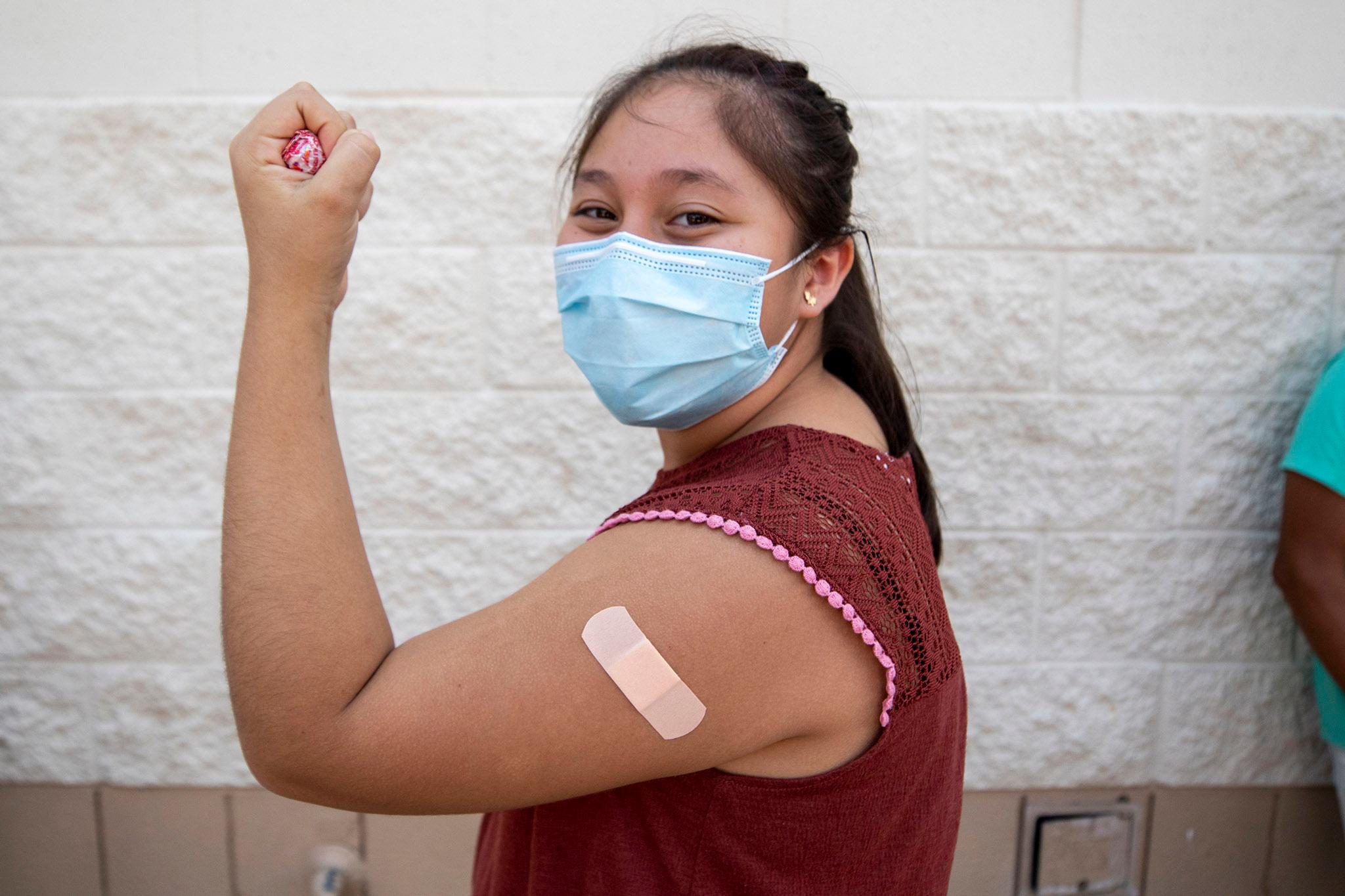The Omicron variant, the latest strain of concern mutated from previous coronaviruses, was officially detected in Denver Friday through the state's random sequencing of PCR tests. One patient is a fully-vaccinated man who received a booster. The other is a woman who had been vaccinated but not boosted. So far, no one in contact with the individuals have tested positive for the variant, and both patients have reported mild symptoms.
The Denver Department of Public Health and Environment said the Omicron cases were caught through community transmission, meaning the variant is already spreading through the city.
Omicron is also more transmissible than the Delta variant, which itself was originally known for its quick spread.
"It's pretty remarkable," Connie Price, the Chief Medical Officer at Denver Health, said. "What is concerning is that even those who have had two doses of vaccine seem to be more susceptible to it than they were to Delta, so boosters become very important."
Gov. Jared Polis previously said the state may be considering making a booster mandatory for full vaccination status. Official DDPHE recommendations for staying safe remain largely unchanged: getting vaccinated and boosted, wearing masks, staying outdoors or in well-ventilated areas and getting tested. But they also recommend all international travelers test themselves three to five days after returning home, regardless of symptoms or vaccination history.
Price said fully vaccinated and boosted individuals meeting vaccinated family members should still feel confident traveling for the holidays. The same cannot be said for unvaccinated individuals.
"The severe disease still remains highest risk if you're unvaccinated," Price explained. "Those who are unvaccinated should not be interacting and should remain home."
The variant has many mutations affecting spike proteins, or the nubs that protrude from the surface of the virus and act as the "keys" into healthy cells. The delta variant has around nine mutations on its spike proteins, while Omicron has 32. But Price said that most preliminary studies have shown that, once a person is infected, outcomes seem to be similar or even less severe than other variants, although concrete results haven't been reported. PCR tests should be able to pick up on the variant, although further sequencing is needed to determine the variant.
DDPHE has stopped short of recommending people postpone holiday travel. Price said she believes mask mandates, which are in effect in Denver until at least Jan. 2, will likely remain the only governmental intervention in the state.
"Mask mandates have been put into effect, mostly because, frankly, they're fairly easy to comply with. It's a much bigger deal to implement travel restrictions, travel bans, stay-at-home orders," Price said. "Now that we have vaccines that will protect against severe disease, it seems a little draconian to start recommending that for vaccinated individuals."
Monoclonal antibody treatments, which recently expanded in Denver, are also likely to be ineffective at preventing high-risk individuals from hospitalization. The treatment, which works through administering lab-made antibodies based on ones collected from previous COVID-19 patients, was previously around 70% effective at protecting those who have tested positive.













